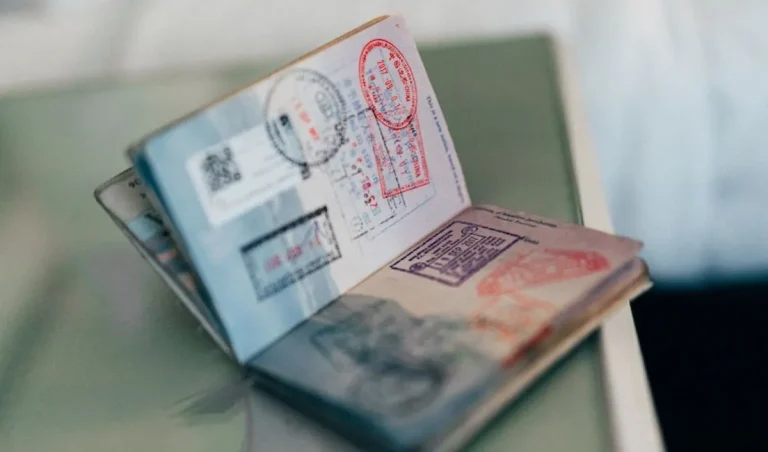Having a hotel cancel your reservation can be extremely frustrating and disruptive to your travel plans.
If you’ve booked a non-refundable reservation weeks or months in advance only to have the hotel cancel on you, you’re probably wondering what your options are and if you can get your money back.
The good news is that there are steps you can take to get compensation if a hotel cancels your confirmed reservation.
If you’re short on time, here’s a quick answer to your question: Under most circumstances, if a hotel cancels your confirmed reservation you are entitled to a full refund of any deposit or pre-payment. You may also be able to claim compensation for any additional costs incurred.
Verify That Your Reservation Was Guaranteed
When a hotel cancels your reservation, the first step is to verify that your reservation was indeed guaranteed. There are a few things you should consider:
Confirmed reservation vs tentative reservation
Check whether you had a confirmed reservation or a tentative reservation. A confirmed reservation means that the hotel has guaranteed your room and you should have received a confirmation email or a confirmation number.
On the other hand, a tentative reservation is not guaranteed and can be canceled without notice. If you had a confirmed reservation, you have a stronger case to dispute the cancellation.
Guaranteed late arrival
If you made a reservation with a guaranteed late arrival, the hotel should have held your room even if you arrive late. In such cases, the hotel should not cancel your reservation without your consent.
Double-check your reservation details to see if you had guaranteed late arrival and use this information when discussing the cancellation with the hotel.
Get cancellation in writing
It is essential to ask the hotel for written confirmation of the cancellation. This will serve as evidence in case you need to dispute any charges or seek compensation.
Ask for an email or a letter stating the reason for the cancellation and any refund or compensation details. Having this in writing will help protect your rights as a guest.
Remember, it is always a good idea to keep all communication and documentation related to your reservation, including emails, confirmation numbers, and receipts.
This will make it easier to resolve any issues that may arise.
Understand Your Rights
Dealing with a hotel cancellation can be frustrating, especially if you have already made plans and arrangements. However, it’s important to understand your rights as a consumer in these situations.
By familiarizing yourself with the relevant regulations and policies, you can better navigate the process and potentially find a satisfactory resolution.
Here are some key points to consider:
FTC Cooling-Off Rule
The Federal Trade Commission (FTC) has a Cooling-Off Rule that applies to certain types of sales. However, it does not typically cover hotel reservations.
The rule primarily focuses on door-to-door sales, timeshares, and sales made over the phone or online.
While this rule may not directly apply to hotel cancellations, it’s still important to be aware of your rights as a consumer and what protections you have in other contexts.
State and local laws
State and local laws can vary when it comes to hotel cancellations. Some jurisdictions may have specific regulations that provide additional protections for consumers.
It’s a good idea to familiarize yourself with the laws in your area or the area where your hotel is located.
This information can typically be found on official government websites or by contacting local consumer protection agencies.
Hotel cancellation policies
One of the first steps you should take if a hotel cancels your reservation is to review their cancellation policy. Most hotels have specific terms and conditions that outline their cancellation and refund policies.
These policies can vary widely, so it’s important to understand what you agreed to when you made the reservation.
Look for details regarding cancellation deadlines, any fees or penalties that may apply, and any exceptions or special circumstances that may be addressed.
If you have any questions or concerns, don’t hesitate to reach out to the hotel directly for clarification.
It’s worth noting that some hotels may offer flexibility or alternative options if they are the ones initiating the cancellation. They may be able to rebook you at a nearby property, provide a refund, or offer a voucher for future use.
It’s always a good idea to inquire about these possibilities and see if they can accommodate your needs.
Request a Refund
Having your hotel reservation canceled can be a frustrating experience, but there are steps you can take to request a refund. Here are some options to consider:
Get refunds for prepaid stays
If you had already paid for your stay in advance, your first step should be to contact the hotel directly and inquire about their refund policy.
Many hotels have flexible cancellation policies, especially during uncertain times. Be polite but firm in explaining the situation and requesting a refund.
If the hotel refuses, don’t give up just yet.
It’s worth checking if you booked your reservation through a third-party website or travel agency. In some cases, they may have their own refund policies or be able to assist you in getting a refund from the hotel. Reach out to their customer service and explain the situation to see if they can help.
Dispute credit card charges
If you were unable to secure a refund directly from the hotel or through a third-party website, another option is to dispute the charges with your credit card company.
Contact your credit card issuer and provide them with all relevant documentation, such as your reservation confirmation and any correspondence with the hotel. They will investigate the matter and work towards resolving the dispute.
Keep in mind that there may be a time limit for filing a dispute, so it’s important to act promptly.
File a complaint with the FTC
If you believe that the hotel’s cancellation policy or refund practices are unfair or deceptive, you can file a complaint with the Federal Trade Commission (FTC). The FTC is a government agency that protects consumers from fraudulent and unfair business practices.
To file a complaint, visit the FTC’s official website and provide details about the situation. The FTC will review your complaint and may take action against the hotel if they find evidence of wrongdoing.
While filing a complaint does not guarantee a refund, it can help bring attention to the issue and potentially prevent others from facing the same problem.
Remember, it’s important to keep calm and be persistent when requesting a refund for a canceled hotel reservation.
Keep records of all your communications, and consider seeking legal advice if you believe you have been unfairly treated.

Find Alternate Accommodations
It can be frustrating and inconvenient when a hotel cancels your reservation. However, there are several steps you can take to find alternate accommodations and ensure that your travel plans are not completely derailed.
Ask the hotel for assistance rebooking
When a hotel cancels your reservation, the first course of action is to contact the hotel directly and inquire about their rebooking policies.
Some hotels may have partnerships with nearby accommodations and can assist you in finding a suitable alternative.
Additionally, they may offer to cover the cost difference or provide compensation for the inconvenience caused.
Use third-party sites for last-minute deals
If the hotel is unable to assist you in finding alternate accommodations, consider using third-party websites that specialize in offering last-minute hotel deals.
These websites often have a wide range of options available at discounted rates.
Be sure to read reviews and check the amenities and location of the hotels before making a booking.
Consider alternate lodging options
If you are unable to find a suitable hotel, consider exploring alternate lodging options such as vacation rentals, bed and breakfasts, or hostels.
These options can provide unique experiences and may be more budget-friendly compared to traditional hotels.
Websites like Airbnb and Booking.com offer a variety of options to choose from.
Remember to remain calm and flexible during this process. While it can be frustrating to have your reservation canceled, there are always alternatives available.
By taking proactive steps and exploring different options, you can ensure that your travel plans stay on track.
Claim Compensation for Damages
It can be frustrating and inconvenient when a hotel cancels your reservation without any prior notice. However, there are steps you can take to claim compensation for the damages caused.
By asserting your rights and advocating for yourself, you may be able to recover any expenses incurred and hold the hotel accountable for their actions.
Ask for reimbursement for expenses incurred
If a hotel cancels your reservation, the first step is to politely ask for reimbursement for any expenses you have incurred as a result.
This may include costs such as transportation fees, accommodation at another hotel, or any non-refundable deposits you may have made.
Be sure to gather all relevant receipts and documentation to support your claim. By providing evidence of your expenses, you increase your chances of receiving compensation.
Send a demand letter
If the hotel refuses to reimburse you or fails to respond to your initial request, consider sending a formal demand letter.
This letter should clearly outline the circumstances of the cancellation, the expenses you have incurred, and your expectation for compensation.
Be sure to send the letter via certified mail or email with a read receipt, as this will provide proof of delivery and increase the seriousness of your claim.
You may also want to mention that you will pursue legal action if your demand is not met.
File a lawsuit in small claims court
If all else fails and the hotel still refuses to compensate you for the damages caused by the cancellation, you may want to consider filing a lawsuit in small claims court.
Small claims court is designed to handle disputes involving relatively small amounts of money, making it an accessible option for seeking compensation.
Before proceeding with legal action, be sure to research the specific procedures and requirements of small claims court in your jurisdiction. It’s also a good idea to consult with an attorney or seek legal advice to ensure you have a strong case.
Remember, it’s important to remain calm and professional throughout the process. By asserting your rights and following the necessary steps, you increase your chances of receiving the compensation you deserve.
Conclusion
Having a reservation cancelled by a hotel can certainly throw a wrench in your travel plans. While cancellations do occasionally happen, you have rights as a consumer.
Verify that you had a guaranteed reservation, request a full refund, find alternate accommodations, and claim compensation if the cancellation resulted in damages.
With some persistence and strategic planning, you can still salvage your trip.






